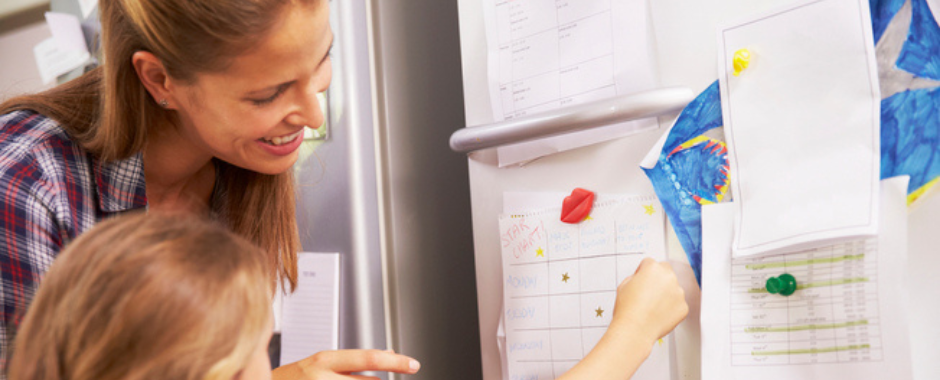With the school year in full swing, many parents are dusting off their child’s sticker charts in hopes of incentivizing positive behavior. These systems can be incredible tools to foster emotional growth and skill development. Children thrive when their environments are clear, consistent, and predictable. We also know that children grow and develop when they are supported, encouraged, and positively guided. After all, most children want to do well and please the adults that they love.
A key problem that I frequently see with behavior systems is a poorly worded goal. If you, like many other Bay Area parents, are preparing a sticker chart or list of responsibilities for your child, here are a few goal-setting pitfalls to beware of and the solutions to help you.
- Be Positive, Not Negative: If your child’s behavior goal includes the words “don’t, no, or stop,” instead ask yourself what you want your child to be doing. For example, if your child struggles with interrupting, consider adjusting the behavior goal to “wait to speak after others stop talking” instead of “don’t interrupt.” This is your opportunity to teach your child the specifics of how to navigate a conflict, solve a problem, communicate a need, or cope with an emotion.
- Be Specific: Behavior goals work best when they are clear, concrete, and specific. Challenge yourself to decipher what you expect. For example, if the goal is “wake up on time,” ask yourself precisely what this would look like. Would you be satisfied if your child was awake at 6:45am but still laying in their bed under the covers? If a goal is too vague, you are less likely to see the result you want and your child won’t develop the skill that they need.
- Keep It Simple: Consider if your request may actually be a hidden multi-step task. Behavior goals work best when smaller changes are reinforced one step at a time. You may consider walking through each goal with your child to practice what your ideal desired behavior looks like. Pretend you are a sportscaster narrating every step and every move that is made. For example, instead of asking your child to “clean her room,” consider the various steps that may actually be involved (i.e. place worn clothes in hamper, put Legos in bin). If you told a friend or neighbor to complete the goal as it is worded, would they know what to do?
Devising solid behavior goals can be a challenging task, but the skills, confidence, and self-esteem they can build are well worth the effort. And as always, we at Parents Place are always here to help.
Dr. Ellie Pelc, PsyD, is a licensed psychologist with specialized training in infant and early childhood development. Ellie Serves as the Associate Clinical Director of the Center for Children and Youth.
Contact us today to schedule a free consultation and learn more about how we can help your family thrive!



